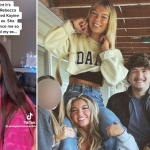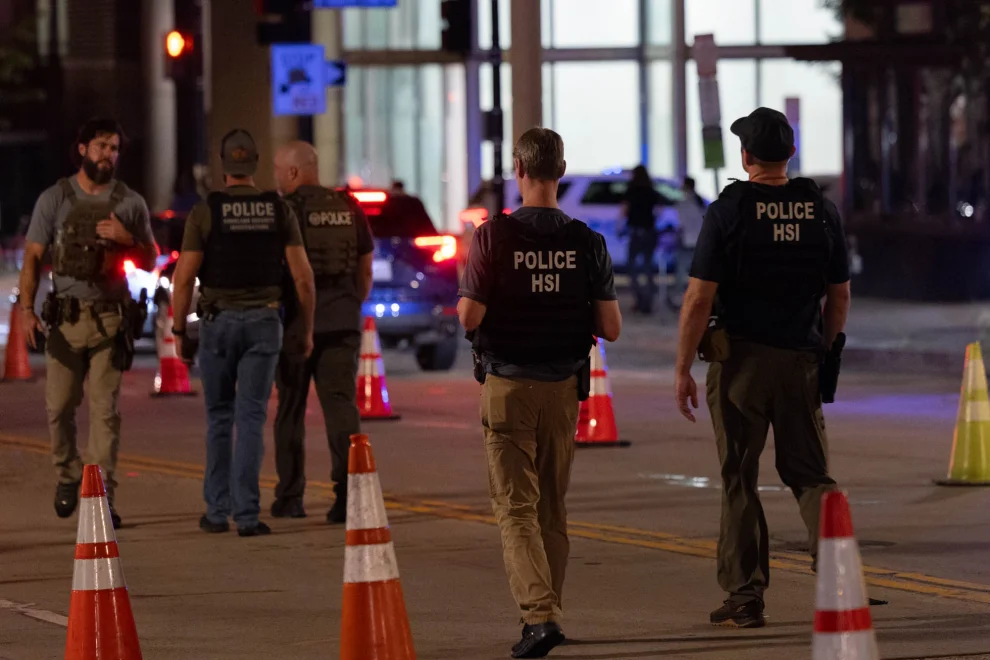D.C. protesters chanted “Whose Street? Our street!” and “Go home!” toward federal and local law enforcement officers conducting a vehicle checkpoint stop across 14th Street NW on Wednesday night. Dozens of Department of Homeland Security and Metropolitan Police Department officers stood on the block between V and W streets to question passing drivers, while several protesters directed traffic away from the scene.
Kenneth, a 28-year-old resident of the U-Street Corridor who lives close to Wednesday’s checkpoint, ran into a nearby drugstore to purchase materials to make a sign directing traffic away from the checkpoint once he saw the officers stopping drivers.
“This is a dark period for our city, obviously, we don’t want federal control over our police department,” Kenneth said. “I just knew that during these times you’ve got to do your part. So I was just trying to redirect traffic so people were not stopped for something that they were not expecting. I’ve never seen this in my five-plus years of living in D.C.”
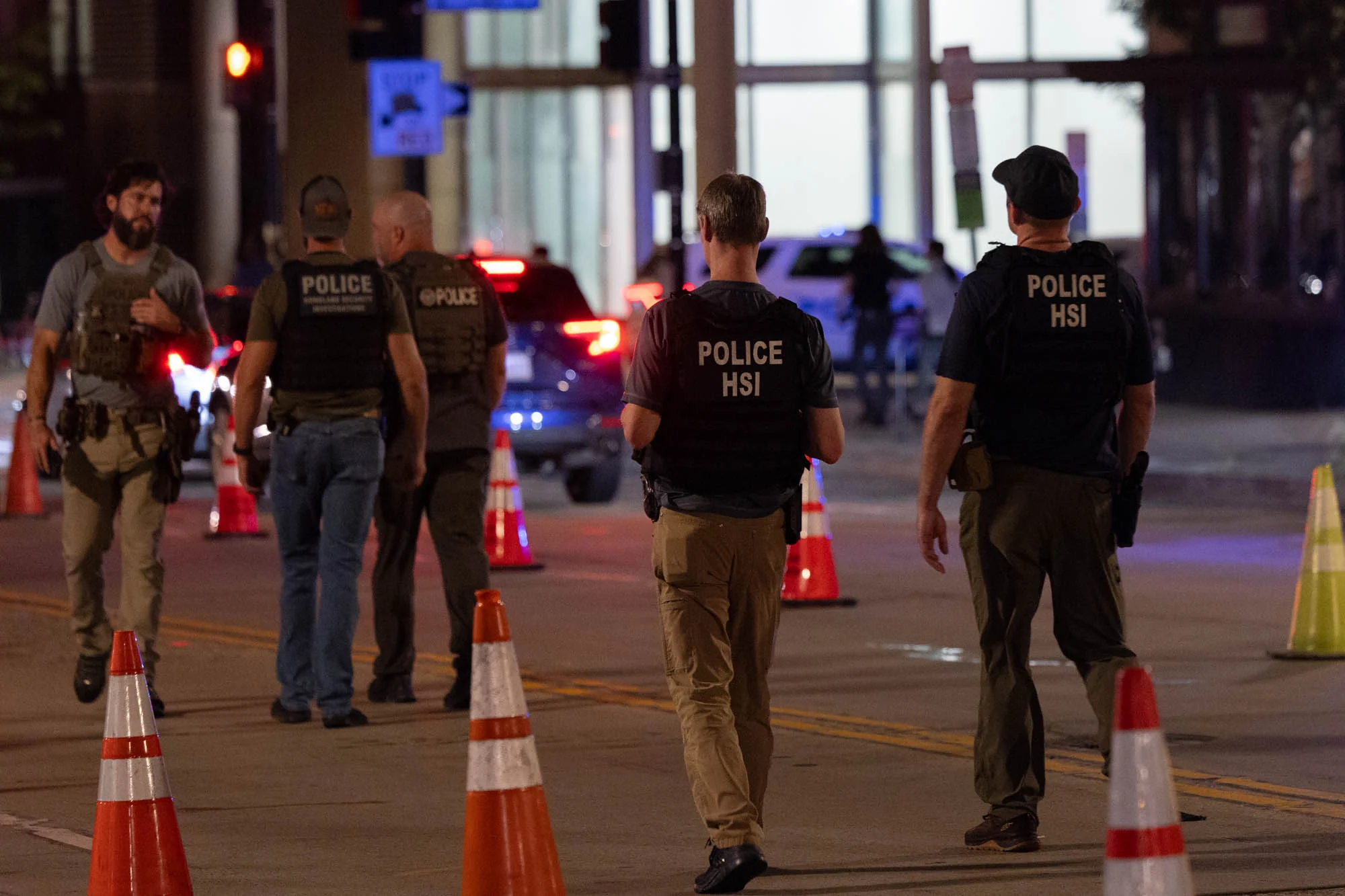
The display of law enforcement follows President Donald Trump’s declaration of a “crime emergency” in D.C. on Monday, during which he federalized the MPD and mobilized the D.C. National Guard for at least the next 30 days. Trump’s executive order came despite recent MPD crime statistics that show total violent crime down 26% compared to last year.
Federal and local law enforcement officers have together arrested over 100 people as part of the officer influx in the capital, according to a White House as of 9:00 p.m. on Wednesday. The Trump administration has activated several federal partners in the region this week, including the Federal Bureau of Investigation, Drug Enforcement Administration, Homeland Security Investigations, Bureau of Alcohol, Tobacco, Firearms and Explosives, Customs and Border Protection, and Park Police.
In the early hours of Wednesday evening, federal officers gathered at the United States Park Police law enforcement facility in Anacostia before they set out into the District.
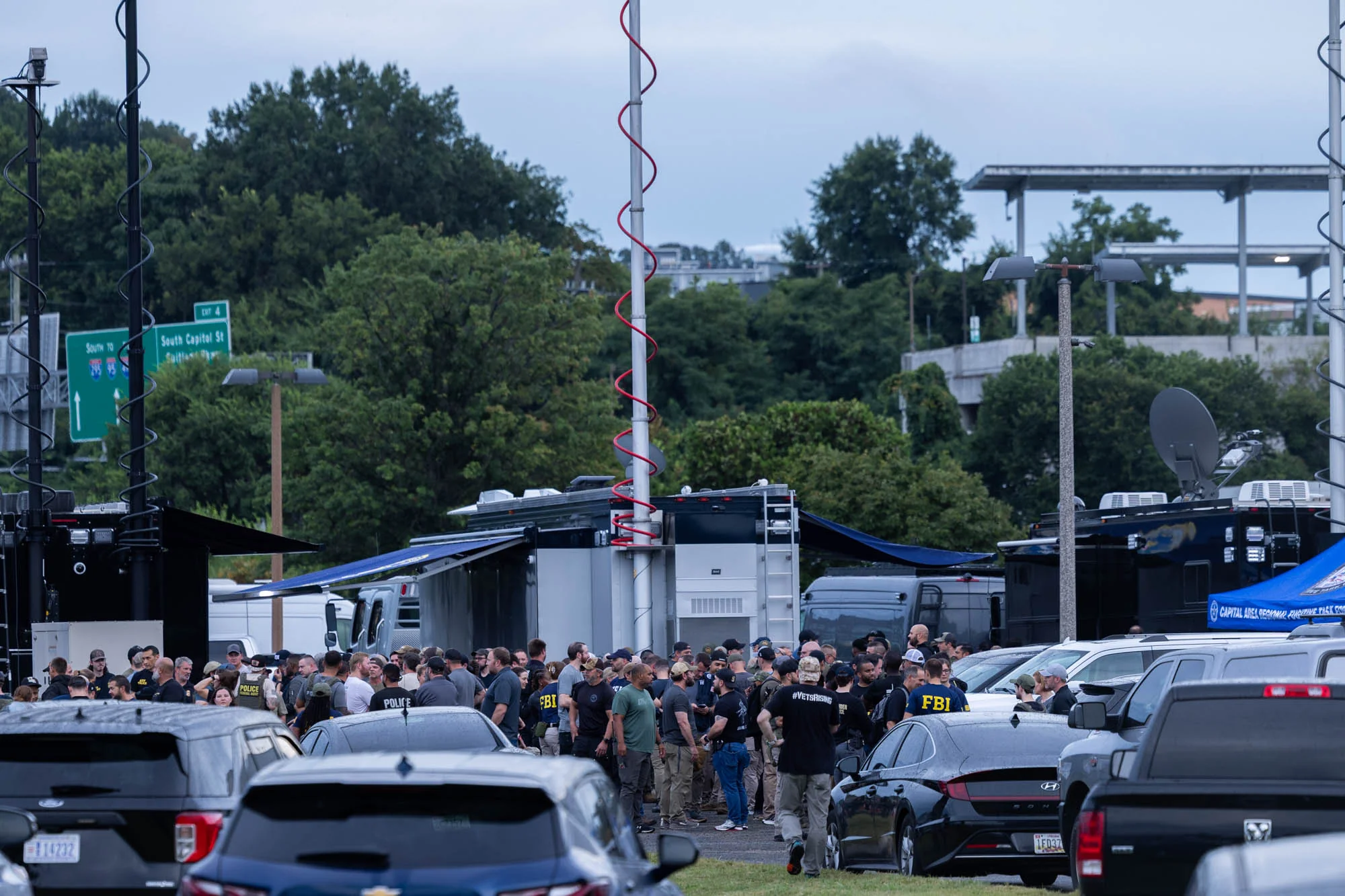
Kenneth said he found the 14th street checkpoint to be “a huge drain on local resources when there’s actually areas of our city that might need assistance.”
“Between V and W on 14th street, you’re not going to find anything,” Kenneth said.
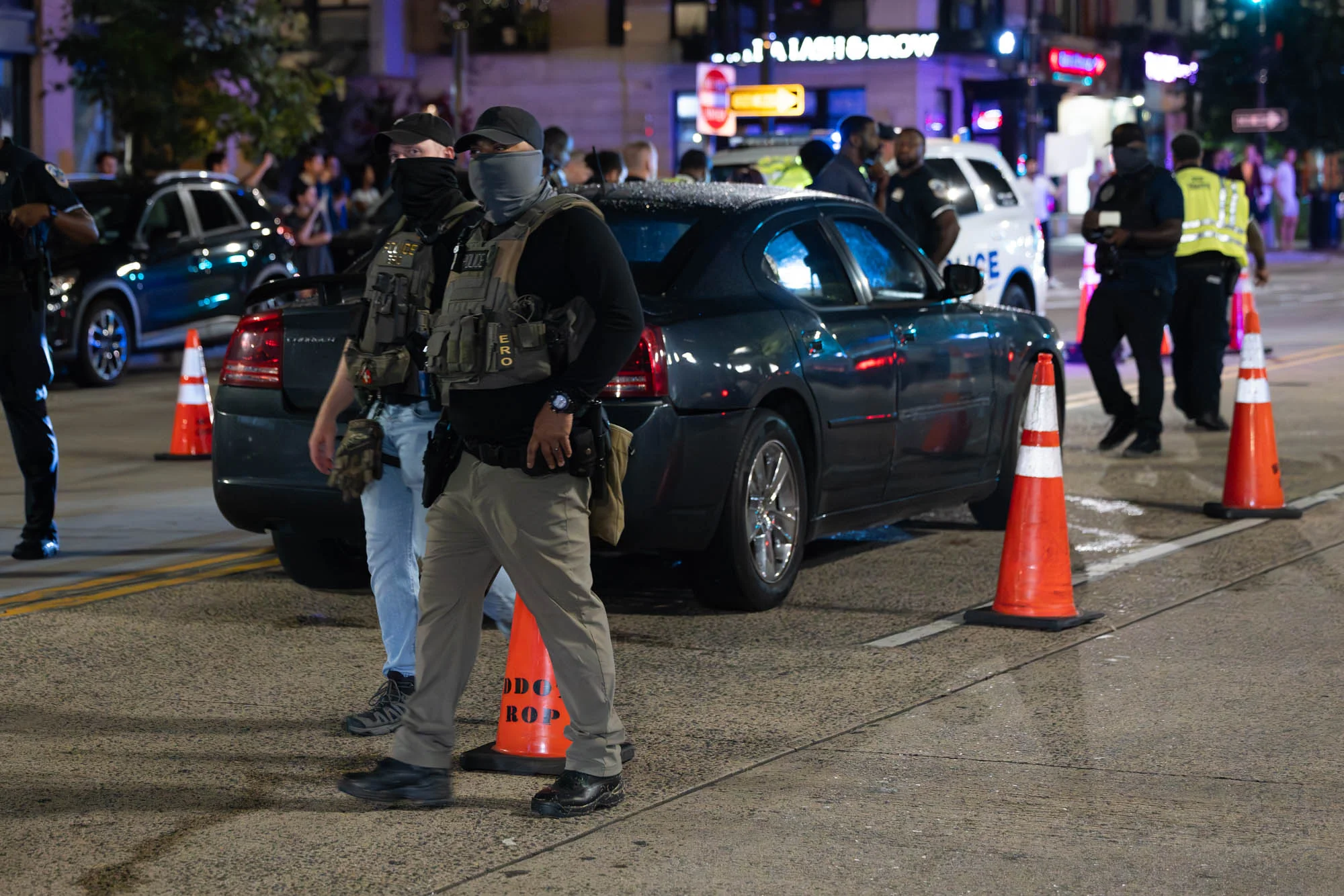
Another protester in her mid-twenties, Meera, also helped direct traffic away from the block as soon as she saw the checkpoint assembling from her nearby apartment complex. She noted how she felt both empowered by the neighborhood’s resistance but also saddened to see federal officers in her own neighborhood.
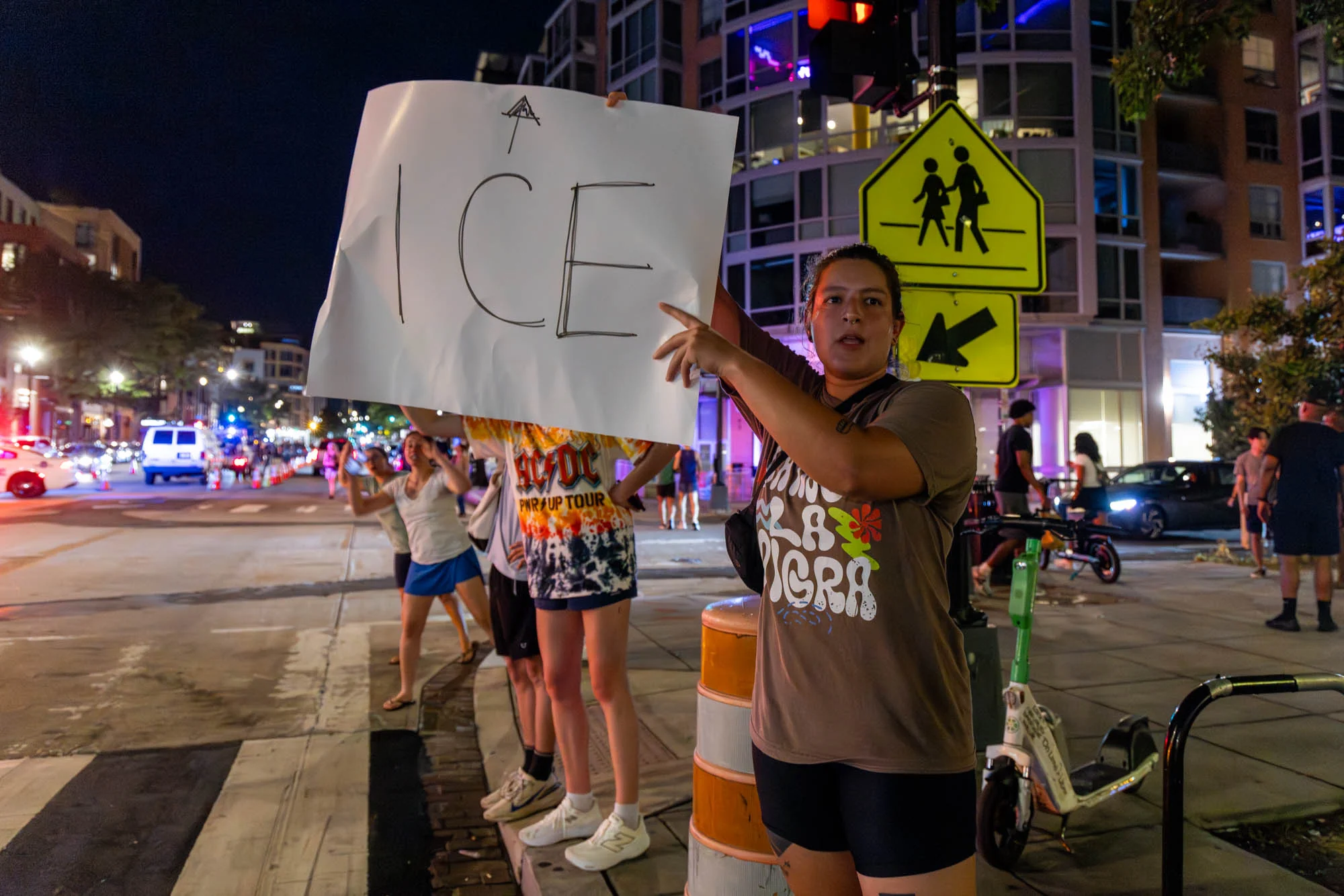
“You have some separation if it’s across town, obviously you feel it deeply, but it’s just really hard to see them pulling people away in our area. Especially as this area was so rapidly gentrified within the past 10 years. Them pulling people here feels much more horrible,” Meera said.
Meera also noted how the Trump Administration’s rhetoric toward the District’s homeless population ties into the law enforcement influx, as the Administration has threatened fines or jail time for homeless individuals who refuse shelter or treatment.
“These people that are already systematically so oppressed, they’re already shot in the foot and now they’re kicking them while they’re down,” Meera said.
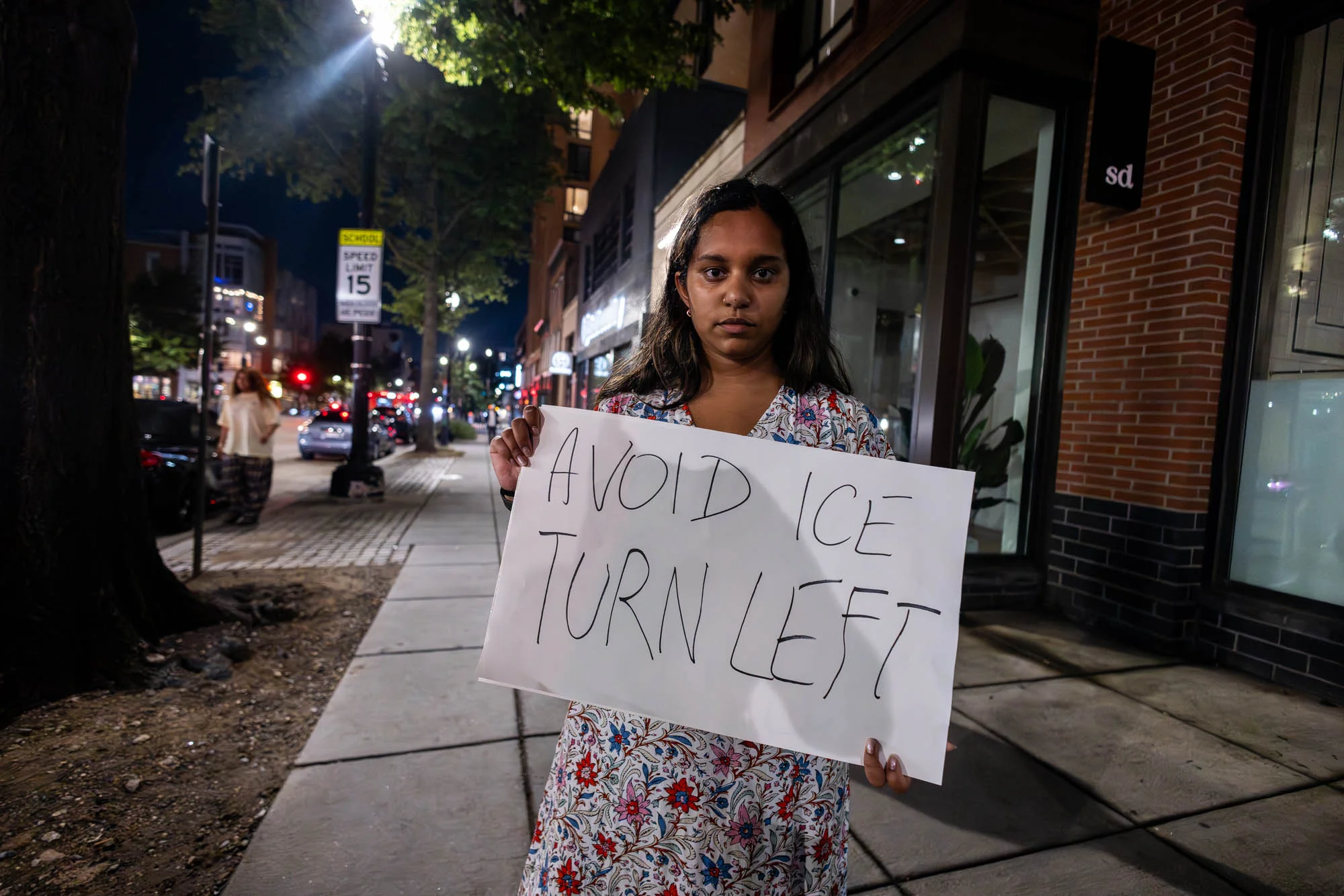
Trump posted images of several D.C. homeless encampments on Truth Social Sunday, writing, “The Homeless have to move out, IMMEDIATELY. We will give you places to stay, but FAR from the Capital”.
White House Press Secretary Karoline Leavitt outlined the administration’s plans for the District’s homeless population in a press conference Tuesday discussing the federalization of MPD.
“Homeless individuals will be given the option to leave their encampment to be taken to a homeless shelter to be offered addiction or mental health services,” Leavitt said. “And if they refuse, they will be susceptible to fines or to jail time.”
The Washington Examiner spoke with several homeless individuals living in D.C.’s Foggy Bottom neighborhood about the administration’s plans to crack down on D.C. homeless encampments.
Meghann Abraham, 34, says she just completed her associates degree in Homeland Security at the College of Southern Maryland and plans to pursue her bachelors degree soon. In the meantime, she is applying to jobs while living in her tent in Foggy Bottom, as she cannot afford the price of rent in the District. She says the MPD served her an eviction notice this past week, saying she needs to remove her property from the area. This is the second eviction notice she has received this year– the first was from outside of Martin Luther King Jr. Memorial Library in March.
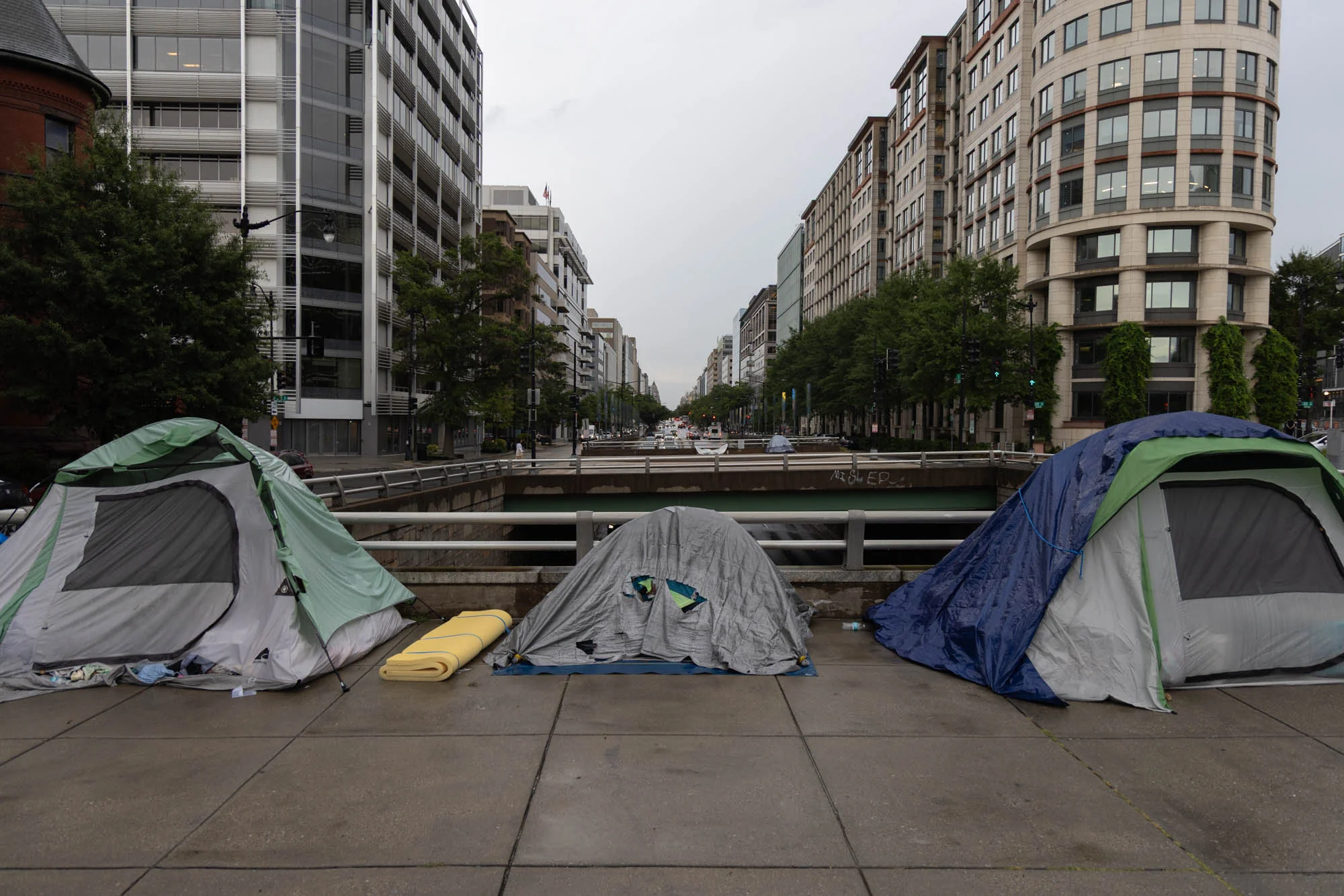
“The Metropolitan Police Department came by with a little sticker that said if your property is still here on this date at this time – for us it’s the 29th of August at 10 a.m. – you have to be out or they will throw it out,” Abraham said. “At Martin Luther King Library, they came with a dumpster truck and asked ‘does anyone know whose this is? Do you know how to contact them?’ I will say, they were trying to get in touch with people.”
Abraham says she has a few options of where she can move her belongings on the 29th. She also noted the feeling of hurt she gets when passer-byers in the area act like she doesn’t belong. She says a lot of people who walk past her in the District gawk and stare, giving her smug looks. She noted a driver the other day yelled ‘where’s your house at?’ when they drove past her.
“When you get treated the same way over and over again, you do start to internalize it. It’s not that I don’t know who I am. It’s not that I don’t know I just got an associate degree. It’s not that I don’t know I have a good work ethic and when I go to work I show up ten minutes early,” Abraham said. “I know my work ethic, I know my worth. But when everyone else starts looking at you that way, you actually do start to internalize it. It takes a lot to swallow it and keep your head forward.”
Abraham’s friend and fellow homeless individual Mr. Spann, 37, also noted what he sees as a misconception that all homeless people are not hard working. “I got a job, but I just don’t have enough money to get my own place,” Mr. Spann said.
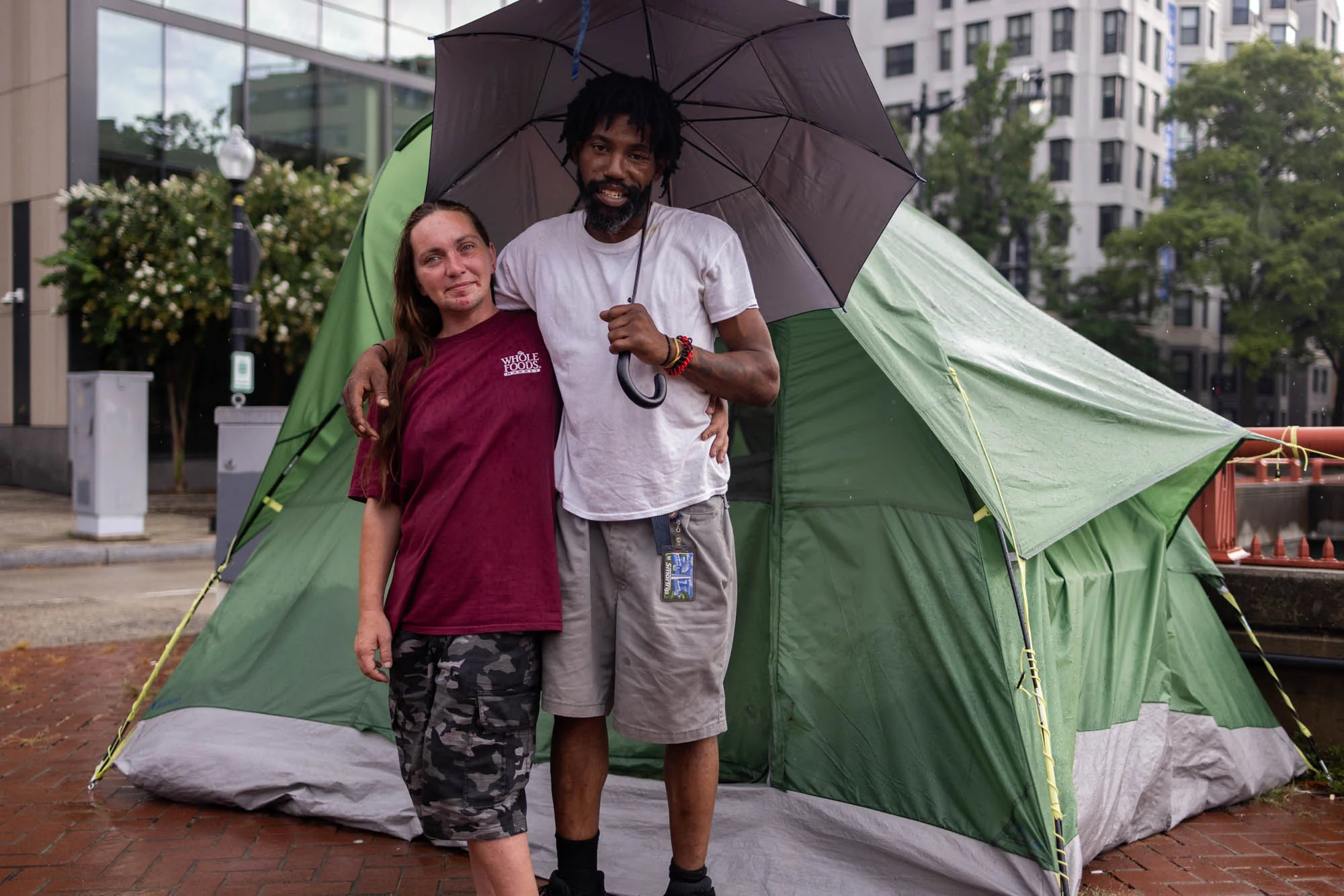
Mr. Spann says he secured his job as a custodian in a local hospital through a temp agency. He addressed his thoughts on the Trump administration’s push to clean up homeless encampments throughout the District as part of their effort to combat crime. The two individuals have received paper warnings from various advocacy groups detailing the federal law enforcement presence and the Trump Administration’s rhetoric towards the homeless.
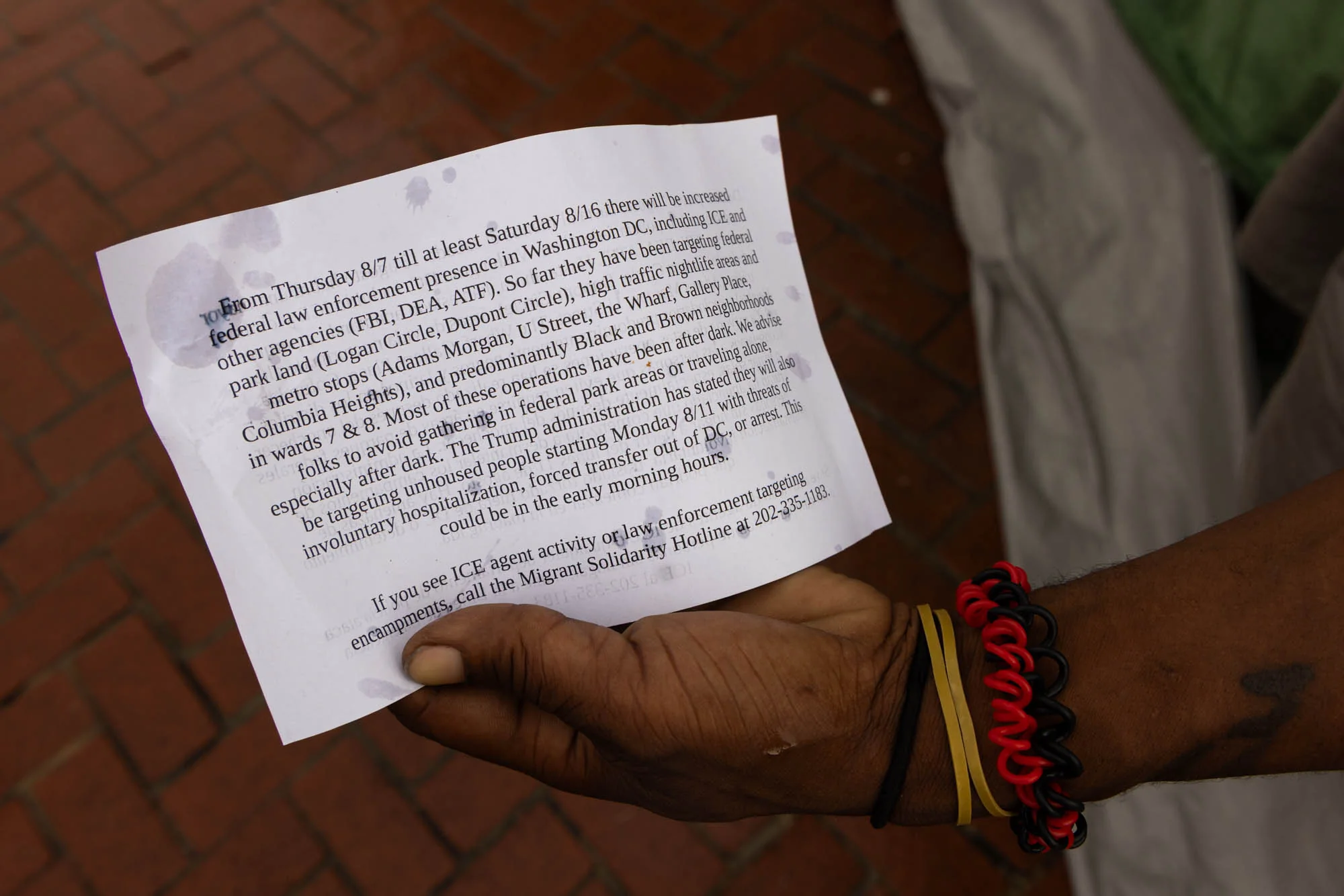
“Where are we supposed to go? What are we supposed to do? Are you going to lock them up? What charge do you have?” Mr. Spann said.
Abraham noted she personally does not like staying in homeless shelters, because she says they can “feel like prison.”
TRUMP CLAIMS DC IS UNDER FEDERAL CONTROL ‘WHERE IT BELONGS’
“I’ve been in shelters before, I don’t like them,” she said. “It’s eat when we say you can eat, shower when we say you can shower. From this hour to this hour, just be locked in the room with whatever random person off the street that we decide you get to live with.”
Abraham pointed to her tent and said “this is easier.”
The DHS and MPD did not immediately respond to the Washington Examiner’s requests for comment on the 14th street checkpoint.





